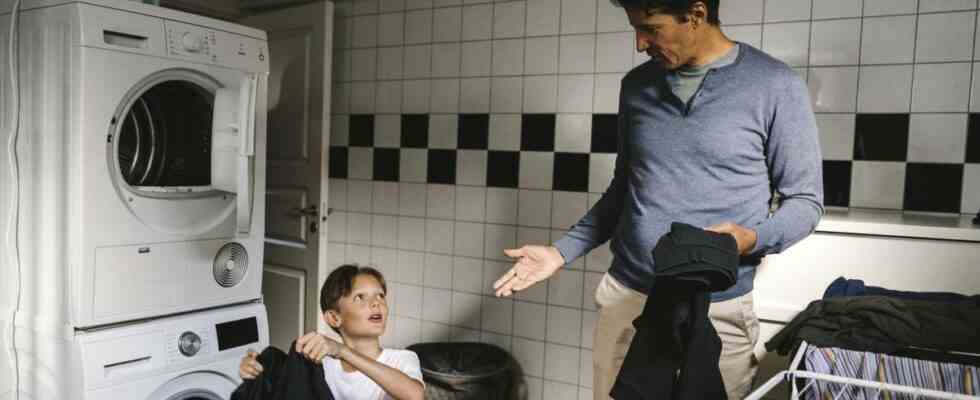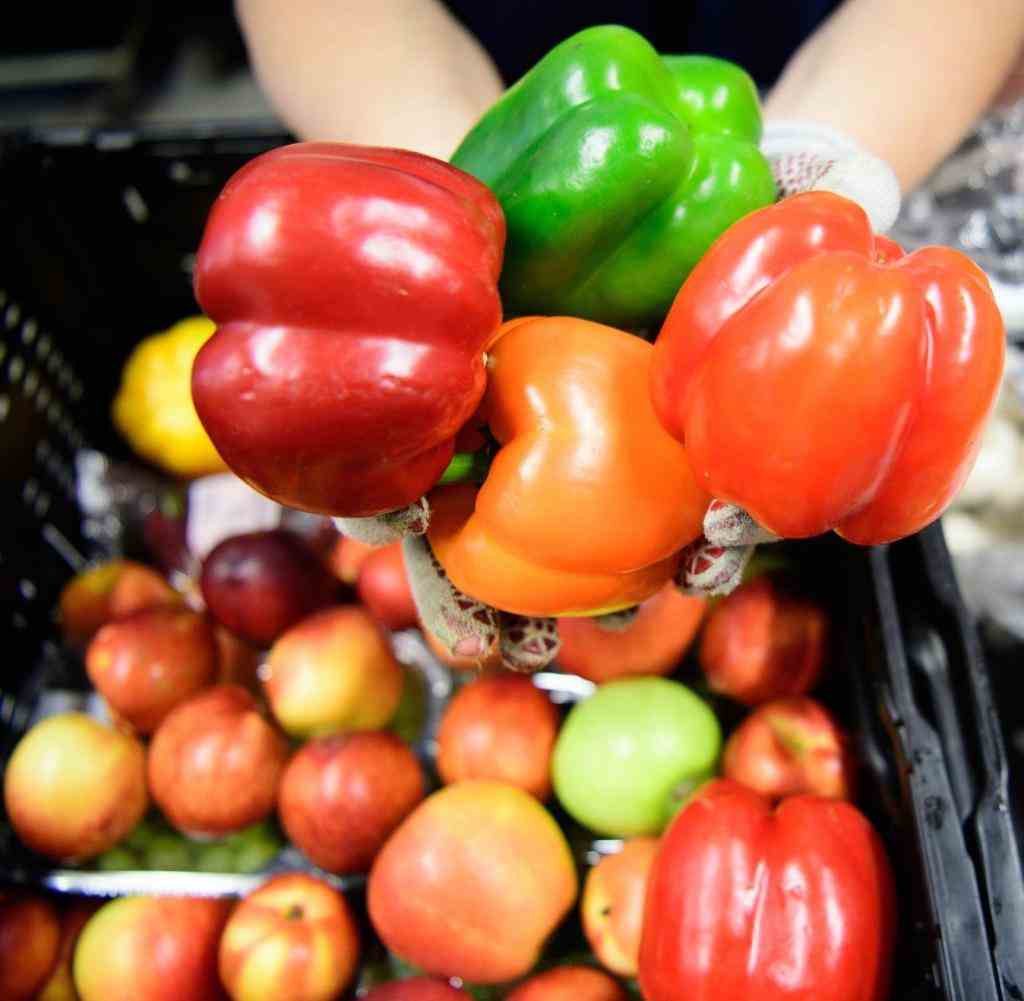Dhe Germans wash their laundry comparatively hot. The average washing temperature in Germany is 43.18 degrees, according to a recent survey by the Collaborating Center on Sustainable Consumption and Production (CSCP) from Wuppertal. That is a few degrees more than in other European countries or in the USA and China. According to market research, only 34.6 percent of the eleven billion laundry loads in Germany every year are washed at 30 degrees or colder. For comparison: the European average is 42.8 percent, in the USA 56 percent and in China even 92 percent.
The environmental organization WWF and the Ariel manufacturer Procter&Gamble (P&G) are now working to ensure that households in Germany wash colder. #Wirhirnuntern is the name of a corresponding campaign that has just started. “The goal is to lower the average washing temperature by one degree per year,” says Christoph Heinrich, Director of Nature Conservation at WWF Germany. Because washing colder is a simple and at the same time effective contribution to the climate.
It won’t be easy, however, according to Astrid Teckentrup, the head of Procter&Gamble in Germany. “As always when deeply rooted habits need to be changed.” Especially since consumers in this country have learned over generations: Delicate laundry at 30 degrees, towels at 60 degrees and boiled laundry at 90 degrees.
But what used to be the norm is now often considered outdated – because both the washing machines and the detergents have improved in terms of their formulations. Teckentrup knows that many consumers have long since given up washing at 90 degrees. The 60-degree wash is still widespread. “It doesn’t have to be anymore.”
In any case, P&G promises the same performance at lower temperatures for the Ariel brand, which is number two in the local detergent market with a market share of 18.4 percent. According to Teckentrup, the reason for this is the so-called CoolClean technology with cold-active substances – in this case the newly discovered and patented enzyme Purezyme.
“Purezyme acts as a catalyst to break down the sticky layer of dirt in the laundry, loosening it from the fabric fibers and speeding up the cleaning process.” The new ingredient belongs to the phosphodiesterase class of enzymes and was developed from initial research at Newcastle University by P&G and Novozymes, the world’s leading supplier of enzymes, further developed into the final molecule.
70 percent of the emissions are caused by consumers
P&G gets a letter and seal from the WWF. The environmentalists have tested the new agent and are now supporting the reduction target as a campaign partner. “Companies play a crucial role in limiting the catastrophic consequences of the climate crisis,” says WWF CEO Heinrich. It is therefore good that P&G is now looking at the entire value chain. Especially since the largest part of the CO₂ footprint when doing laundry does not go to the production, packaging and transport of detergent, as Heinrich calculates, but to the washing cycle in the machine, above all to the heating of the water.
This is also confirmed by the Federal Environment Agency. A wash cycle at 30 instead of 40 degrees, for example, reduces CO₂ emissions by up to 35 percent, according to WWF and Ariel calculations. When jumping from 60 to 30 degrees, the savings potential is even up to 60 percent. “If you turn it down, you can reduce CO₂ emissions and save electricity and money at the same time,” says environmentalist Heinrich.
The three-year campaign by WWF and P&G is now being scientifically monitored by the CSCP. During this time, the institute is supervising a focus group of around 1,000 households, which then wash their laundry at lower temperatures.
The results of the study should then help to realistically assess the potential and to be able to transfer it to other initiatives within the WWF network, says association boss Heinrich, according to which P&G has to pay money for the WWF seal used. “At the same time, we are hoping that the campaign will send a signal to other detergent manufacturers.” In fact, other companies are also aware of the issue.
Especially since the manufacturers’ commitment to lower washing temperatures is closely linked to their own sustainability plans. The long-term goals in particular are about the consumption of resources in the entire value chain – including use in the washing machine. It is also important for the corporations to achieve their goals because they want to convince stockbrokers who are sustainability-oriented – especially funds that invest according to sustainability criteria.
So advertises unilever on the capital market with the fact that the S&P Dow Jones Sustainability Index named the company the sustainability leader in its sector. Persil manufacturer handle in turn, 2021 has green for the first time bonds with a volume of EUR 700 million, the interest rate of which depends on the achievement of sustainability goals.
The analysis of the life cycle of detergents shows that 60 to 70 percent of the CO₂ emissions are caused by the consumers. So if manufacturers want to get closer to their goals in this area of operating in a climate-neutral manner in the long term, they have to credibly demonstrate that their customers actually wash colder. That’s why they run appropriate campaigns – some individually or organized by the international industry association AISE under the label “Cleanright”. Among other things, Henkel’s detergent division received the City of Vienna’s environmental award for its 20-degree campaign.
However, the Coral manufacturer Unilever is moving away from the approach of encouraging consumers to wash colder because the results of the educational work were disappointing. “Decarbonizing the power supply yields faster results than attempts to change consumer behavior.
This is an important lesson from the past ten years with our sustainability program,” writes the group about its low-temperature campaigns in its current plan. This envisages becoming climate-neutral over the life cycle of the products by 2039 – and that would be achieved when washing, even at high temperatures, if the electricity itself is climate-neutral.
Unilever will therefore do more lobbying for the switch to renewable energy, the paper says. In return, consumer programs would be limited to areas where they promise more results. Unilever cites the topics of food waste and vegetarian food as examples.
“Everything on shares” is the daily stock exchange shot from the WELT business editorial team. Every morning from 7 a.m. with our financial journalists. For stock market experts and beginners. Subscribe to the podcast at Spotify, Apple Podcasts, Amazon Music and deezer. Or directly by RSS feed.




